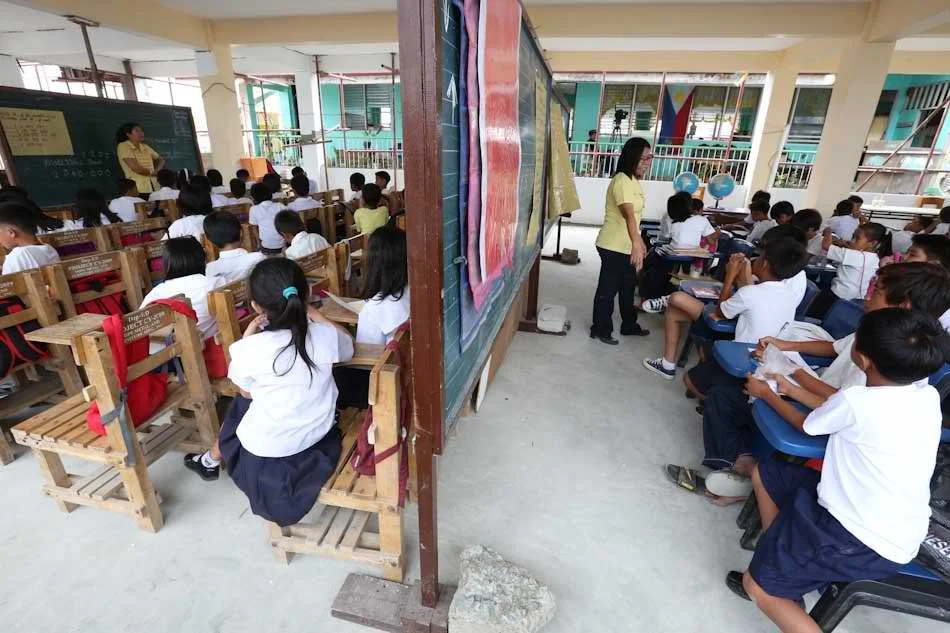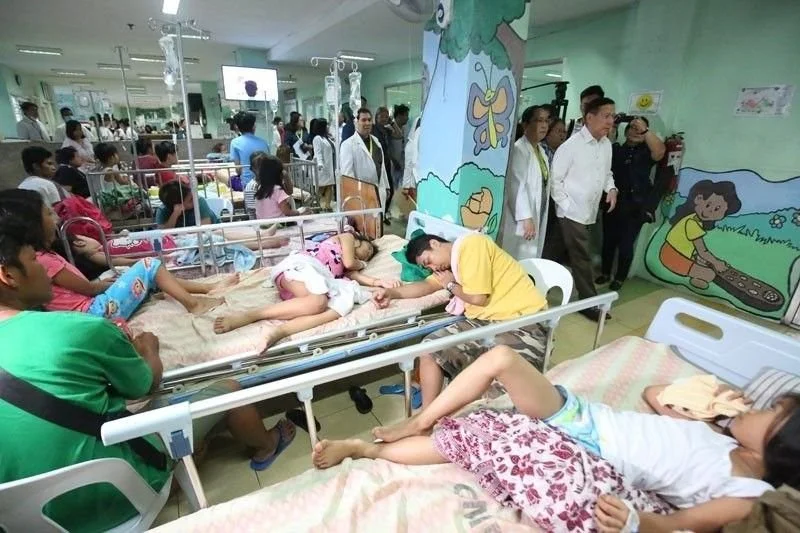You pay 100% in taxes, but get 30% in return—and that’s being generous.
When public funds vanish into the pockets of a few, families end up paying twice: once through taxes and again through private expenses. Corruption isn’t only about politicians pocketing money or signing rigged contracts. It is the hidden hand that weakens our schools, hospitals, roads, flood control systems, and disaster relief programs. The cost is felt in every household, often without us realizing it.
When Education Fails Us: Ghost Schools and Overcrowded Classrooms
Education is meant to be the ladder out of poverty, yet corruption keeps it fragile. “Ghost schools” exist on paper, consuming millions in budget allocations but never materializing. Overpriced textbooks, substandard furniture, and classrooms that cannot accommodate students are common problems.
Families are forced to send children to private schools, pay for tutoring, or buy supplies themselves. A supposedly “free” public education becomes an expensive burden, often pushing families into debt.
The impact is long-term: fewer students achieve quality education, limiting opportunities for higher-paying jobs and perpetuating poverty cycles.
Healthcare Under Siege: Hospitals That Cannot Heal
Healthcare suffers in similar ways. Hospital equipment may be delayed, underfunded, or never delivered due to inflated contracts or fake procurement. Rural clinics are often understaffed or lack essential medicines, leaving communities without proper care.
Families end up paying for private consultations, laboratory tests, and medications. For millions living paycheck to paycheck, this forces impossible choices: treatment or food, care for one family member or another.
Roads, Bridges, and Infrastructure That Fail
Roads, bridges, ports, and drainage systems are the lifelines of a country, but corruption undermines them. Overpriced construction projects and substandard materials lead to infrastructure that deteriorates quickly. Roads crack, bridges weaken, and flood control projects never fully materialize.
Poor infrastructure is more than inconvenient—it directly affects the economy. Investors measure a country’s trustworthiness by the quality of its roads, ports, and utilities. When projects fail or funds are misused, investors hesitate, slowing economic growth and weakening the peso.
Floods That Cost Lives: Disaster Relief Under Corruption
Flood control budgets are a critical example. Billions are allocated to prevent flooding, yet rivers remain clogged, drainage systems fail, and protective walls remain incomplete. Typhoons hit harder, homes are destroyed, livelihoods lost, and the poor bear the brunt.
Relief operations often fail because funds meant for disaster aid are diverted. Families pay indirectly—through rebuilding costs, lost workdays, or medical bills from injuries caused by inadequate safety measures.
Why Families End Up Paying Twice
The pattern is clear: public services fail, and families are forced to pay privately. Private schools, private hospitals, private repairs—all come at a cost. Corruption turns what should be a shared public benefit into a personal burden, hitting ordinary Filipinos hardest.
How Do We Fight Back?
Corruption is not invincible. Every Filipino has a role to play in dismantling it:
Demand Transparency – Push for open access to government contracts, budgets, and procurement reports.
Support Whistleblowers – Encourage and protect those who expose misused funds.
Strengthen Community Oversight – Parent-teacher associations, barangay councils, and civic groups can monitor local projects.
Vote Responsibly – Elect leaders who demonstrate integrity and prioritize public welfare.
Educate Others – Awareness is the first step toward accountability.
Every small act of resistance, reporting anomalies, questioning projects, and supporting honest governance—chips away at the system.
Corruption may seem too big to fight, but it crumbles when ordinary Filipinos decide to resist—by guarding their votes, demanding accountability, and rejecting the culture of bribes and favors. Every small act counts. Every citizen who speaks up, monitors spending, or refuses to participate in corruption strengthens the fight.
The time to act is now. Protect your future. Demand transparency. Reject corruption in all forms. Every peso saved, every vote protected, every awareness raised makes a difference. Together, Filipinos can ensure that public services serve the people—and not the pockets of the few.




